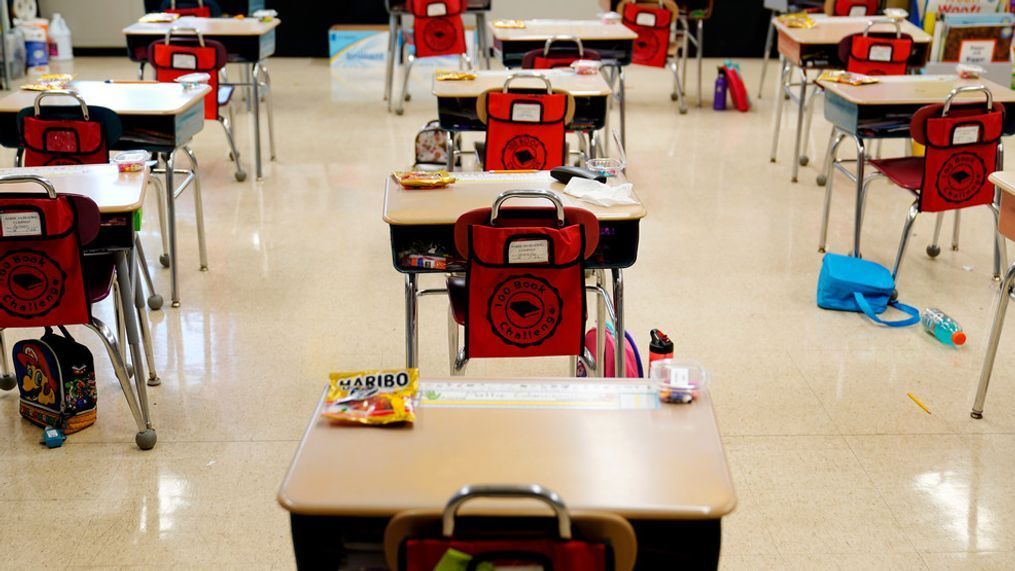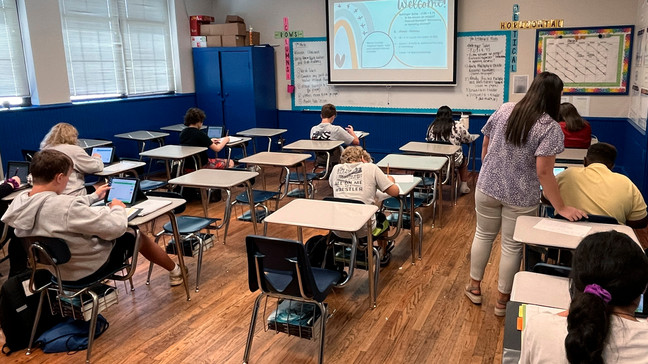Chronic absenteeism rising across the nation as parents say there are other concerns
WASHINGTON (TND) — Chronic absenteeism is a challenge facing schools across the nation.
But, according to a new NPR/IPSOS poll, only a third of parents can correctly define what chronic absenteeism is and many say it isn't a major concern.
A mom of three living in Arizona, Tina Presuhn said she has no issue with her kids missing a day of school every now and then.
I would give my kids an allowance to stay at home at least once every three months," said Presuhn.
But she says some kids are using the pandemic to justify missing a lot more than just a few days.
"There was an excuse, you know the pandemic, 'We don't have to go to school now' and I think that's been used as an excuse," Presuhn said.
Assistant Professor at George Washington University Adriana Glenn said chronic absenteeism is defined as missing 10% or more of any academic school year.
So if you think about your average school year, it's around 184 days, so you're looking at about 18 days of missed school," said Glenn.
Glenn said schools see chronic absenteeism more in certain grades than others. She says students in pre-K, kindergarten and first grade are absent "a good amount." Then, between 4th and 9th grade absenteeism starts to go down. But once students reach high school, it starts to climb back up.
Those are trends that we see across the nation," said Glenn.
Presuhn said chronic absenteeism is only one of the problems parents are focused on. Bullying, gun violence and finding teachers are also major issues.
It's tough to be a teacher. There's 30 humans that are so judgmental staring at you all day long and that will break you down at some point," said Presuhn.
According to The American Enterprise Institute, chronic absenteeism increased from 15% in 2018 to 29% in 2022.




